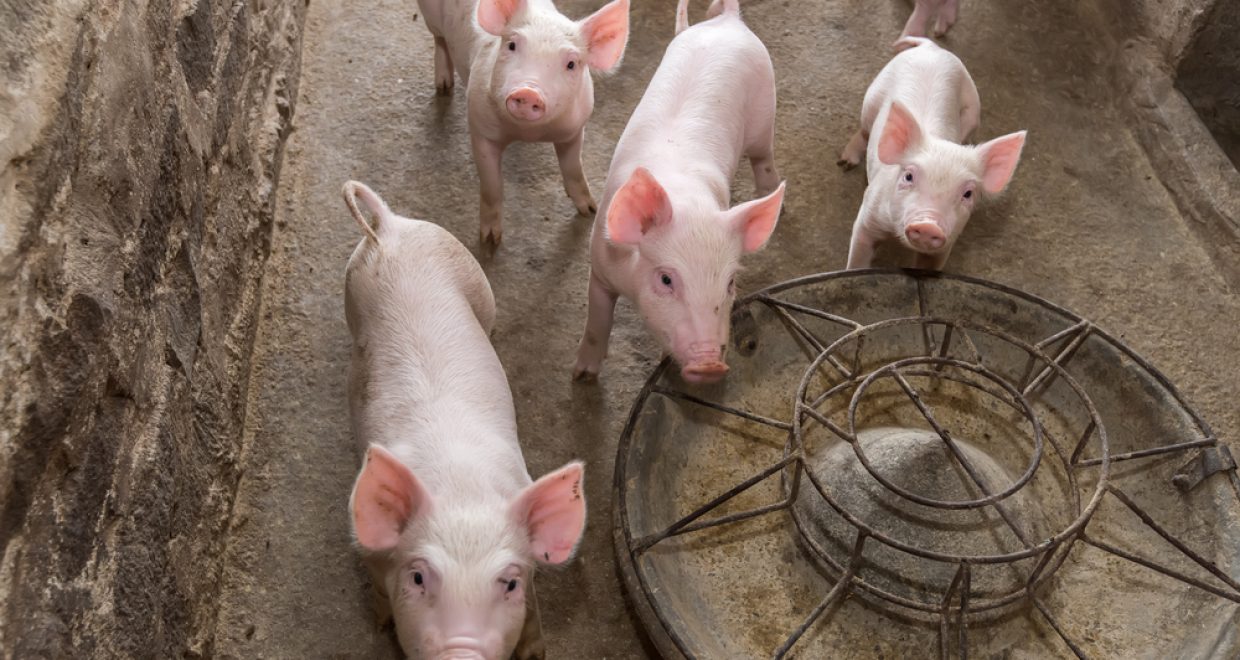The effect of inflammation on residual feed intake in piglets
The animal Article of the Month for October is entitled ‘Effect of inflammation stimulation on energy and nutrient utilization in piglets selected for low and high residual feed intake’
Selection of animals for improved feed efficiency can affect sustainability of animal production because the most efficient animals may face difficulties coping with nutritional, environmental, social, or sanitary challenges. Additionally, this selection is always based on animals that are raised in good conditions and not submitted to these challenges.
To understand the relationships between sanitary challenges and genetic selection for feed efficiency, we did an experiment with piglets originating from two lines of pigs divergently selected during the fattening period for a low (RFI-) or a high (RFI+) residual feed intake (RFI). The RFI of a growing animal is calculated as the difference between its actual feed intake and predicted feed intake required for maintenance and growth, but not for other non-productive functions as inflammatory and immune response.
The experiment was conducted during 2 periods of 3 days each, with one day between the 2 periods. During this time, the animals were submitted to an inflammatory challenge using an intravenous injection of complete Freund’s adjuvant (CFA). During each period, heat production, nitrogen and energy balances were measured in 7 and 6 castrated male piglets from each line individually housed in a respiration chamber. Additionally, total heat production was partitioned between its components related to physical activity, thermic effect of feeding and resting metabolism. On the last day of each period, we estimated the dynamics of dietary U-13C-glucose oxidation from measurements of 13CO2 production in exhaled air. Because of genetic selection, the most efficient piglets (RFI-) had a lower resting heat production and tended to increase their energy retention because of a higher energy retention as fat. The CFA injection did not affect feed intake from the day following CFA injection onwards but it increased energy retention. The CFA injection also decreased the rate of dietary glucose oxidation in RFI+ piglets to the level of RFI- piglets. Contrary to RFI- piglets, RFI+ piglets tended to oxidize less dietary glucose after the CFA injection than before.
Our study indicates that selection for RFI during the fattening period affects the energy metabolism of pigs during earlier stages of growth. The effects of an inflammatory challenge by CFA injection were moderate in both lines but the most efficient animals (RFI-) recovered rapidly after a 1d towards fighting the inflammation, whereas the less efficient piglets expressed a more prolonged alteration of their metabolism. The way metabolism is affected by the immune response may be anticipated through modification of diet composition to limit the impact on growth.
The full article is freely available for one month* via journals.cambridge.org/anm/oct15
Authors: E. Labussière, S. Dubois, H. Gilbert, J. N. Thibault, N. Le Floc’h, J. Noblet and J. van Milgen
The animal Article of the Month is selected by the Editor-in-Chief and is freely available for one month
*Due to issues with our blog all papers selected as the ‘animal Article of the Month’ from September – November will be freely available until 31 January 2016





